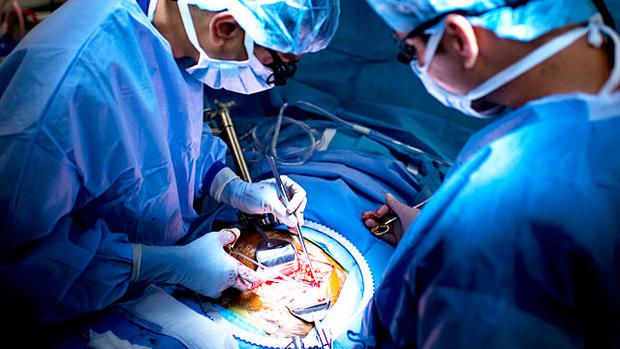Kidney meant for transplantation thrown out at Ohio hospital
(CBS/AP) An Ohio nurse accidentally threw out a kidney from a living donor this month at the University of Toledo Medical Center, health officials said. Doctors tried unsuccessfully for at least two hours to revive the organ in what medical experts describe as a rare accident.
"Human error rendered the kidney unusable," University of Toledo Medical Center spokesman Toby Klinger said Saturday. "Efforts were made to restore the kidney to a usable state, however the physician, in consultation with the family, decided to not take the risk knowing there was a good chance for another highly compatible donor."
Pictures: Celebrating second chances: The Transplant Games of America
Teen sells own kidney to get hands on iPad 2
Pictures: Inside look at kidney transplant (GRAPHIC IMAGES)
Klinger declined to give more details, citing the hospital's investigation and patient privacy. But one of the doctors involved told Dr. David Grossman, a Toledo-Lucas County health commissioner, that a nurse disposed of the kidney improperly.
Grossman told the Blade newspaper in Toledo that a man had donated the kidney to his older sister. Both the donor and the intended recipient have been released from the hospital, Klinger said.
The hospital has voluntarily suspended the live kidney donor program while they review what happened and determine how to prevent errors in the future, according to Dr. Jeffrey Gold, the medical center's chancellor and vice president for biosciences and health affairs.
He said that doctors tried to save the kidney, but "the physician in consultation with the family decided to not take the risk, knowing there was a good chance for another highly compatible donor."
Grossman's office is not involved in the investigation or connected to the medical center, Klinger said. Grossman could not be reached for comment Saturday. The Toledo-Lucas County Health Department was closed.
"We cannot fathom the disappointment that those impacted have experienced over the course of the last week. The university cannot begin to express the sorrow that we feel that this unfortunate incident occurred," Dr. Jeffrey Gold, chancellor and vice president for biosciences and health affairs at UTMC, told The Blade. "We apologize sincerely."
This kind of accident is unheard of in organ transplant centers, and it was a good decision not to use the kidney, Dr. William Harmon, director of kidney transplantation at Boston Children's Hospital, told the Blade.
"This is unfortunately what medicine is like - it is not perfect, and there have been far worse cases where the donor has died," Harmon said.
Officials at the United Network for Organ Sharing (UNOS), an agency that oversees the nation's transplant programs, could not be reached for comment Saturday.
There were 16,816 kidney transplants in the U.S. last year from live donors and from those who consented to organ donation through state registries should they die from an illness or accident, the newspaper reported.

